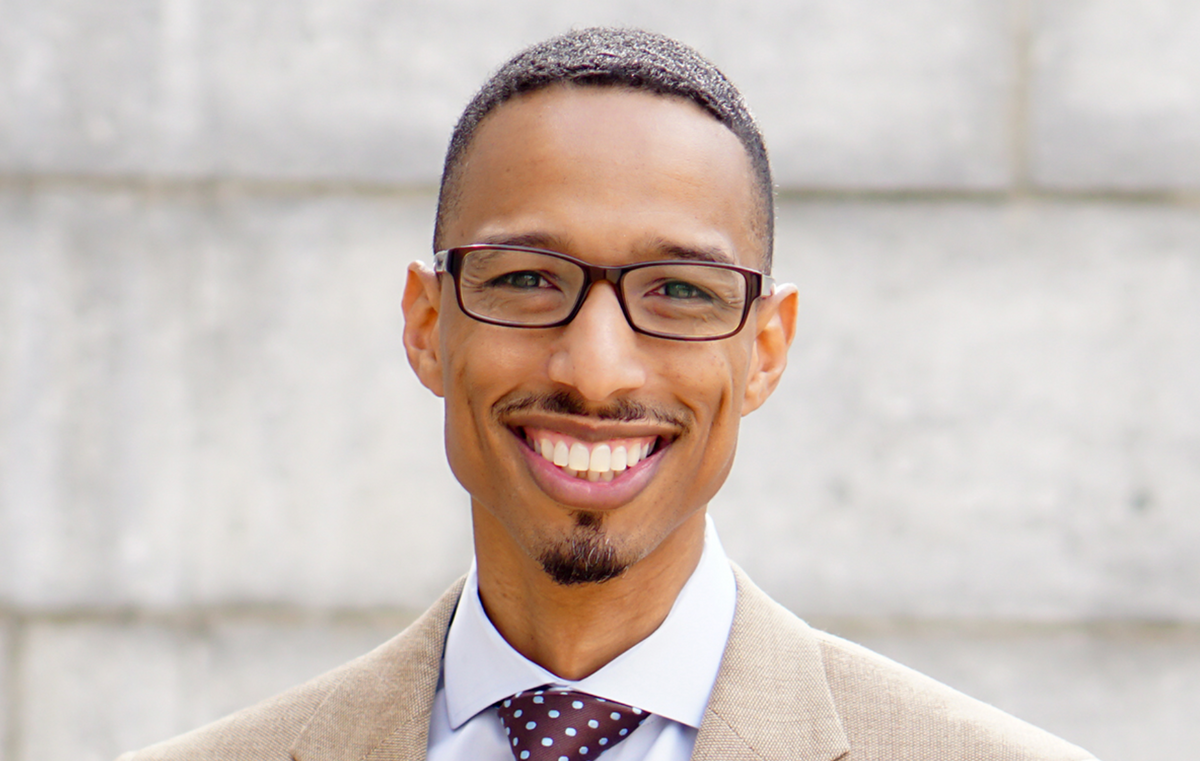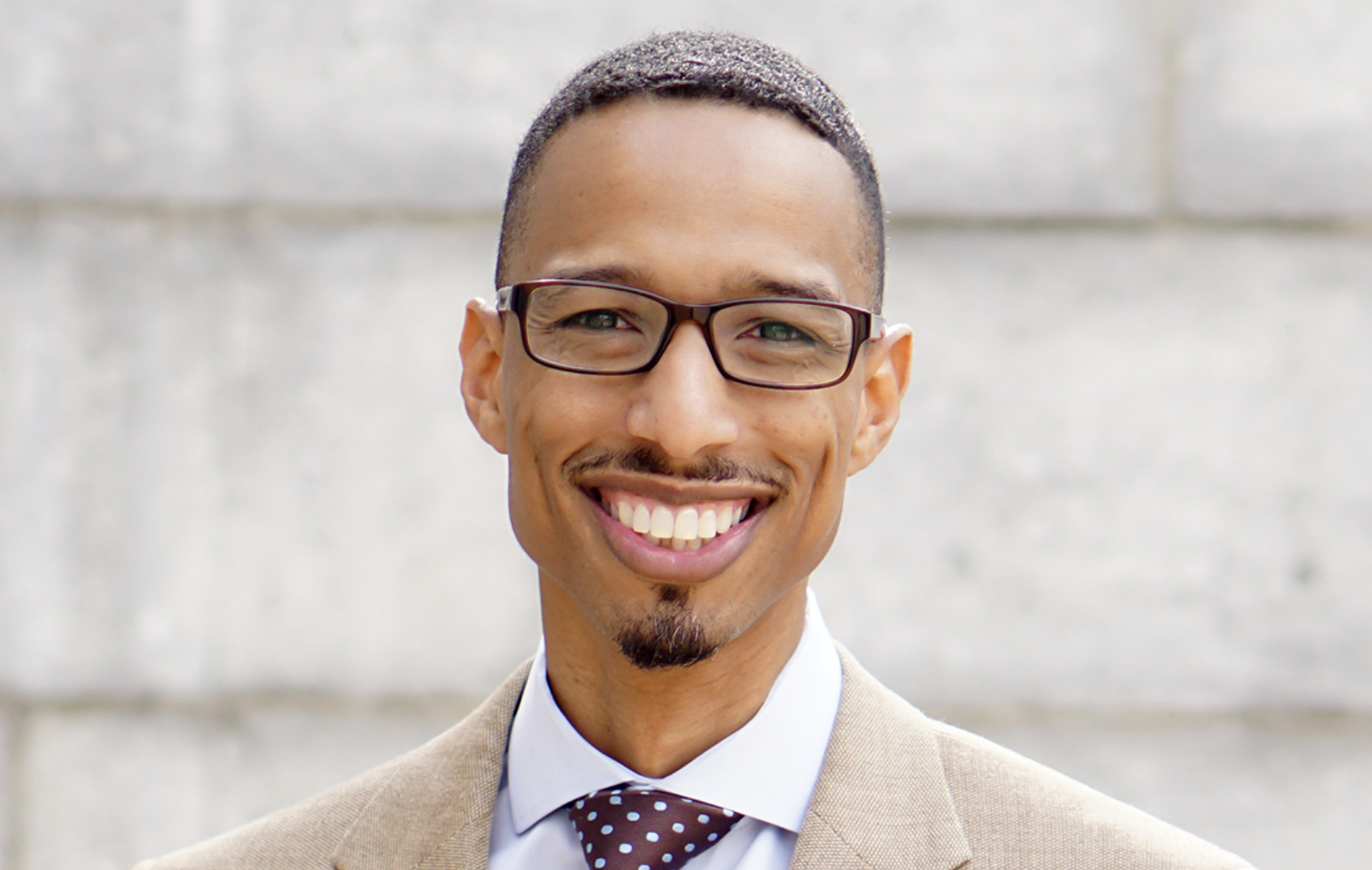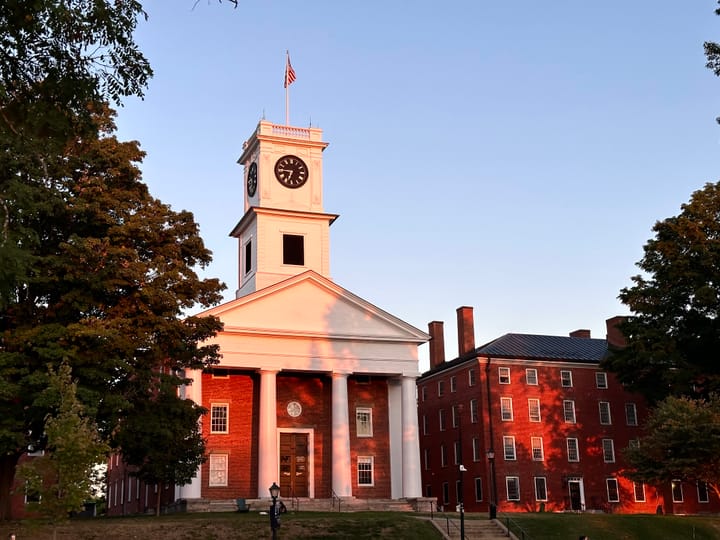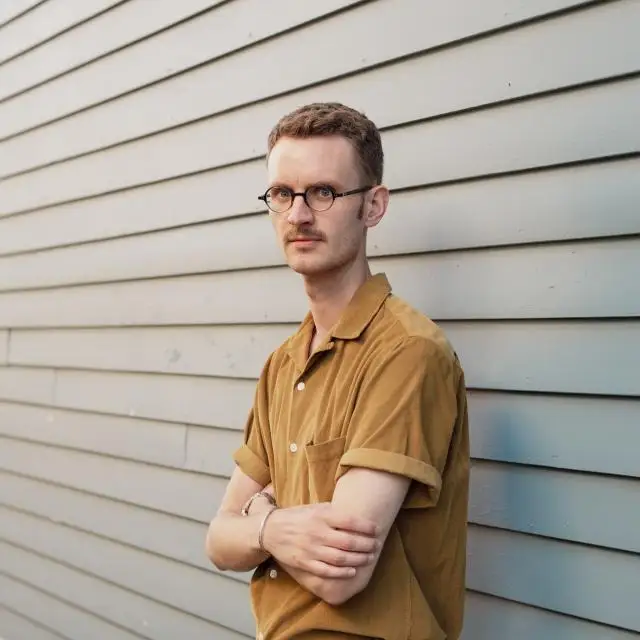Fresh Faculty: Stefan Bradley
Stefan Bradley is a professor of Black studies and history. He received his B.A. from Gonzaga University, his M.A. from Washington State University at Pullman, and his Ph.D. from the University of Missouri at Columbia.


Stefan Bradley is a professor of Black studies and history, who also teaches courses in the education studies department. He received his B.A. from Gonzaga University, his M.A. from Washington State University at Pullman, and his Ph.D. from the University of Missouri at Columbia. He previously taught at Southern Illinois University Edwardsville, St. Louis University, and Loyola Marymount University before joining the Amherst faculty in the 2021-2022 school year.
Q: How did you become interested in the disciplines you now teach?
A: I guess I was exposed to what we call Black studies, to what we call Black history, very early. You know, my father … he didn’t go to college, but he was very well-read, and so we had books in his closet. I thought I was sneaking in to really see something, but these were books on Black history, Black literature, Black psychology, all of these various elements that come together to make Black studies. I got a chance to see those, looking at Jet Magazine and Ebony Magazine — these things piqued my interest early on.
But if I were being forthright, I don’t think I had really considered the possibility of studying — studying intently — Black history until I had a debate with a white student out at Gonzaga University. The debate was over affirmative action … I won’t say that I lost. But I didn’t win the debate. And part of the reason was, I wasn’t as acquainted with history as I needed to be. And so I made a promise to myself at that point, that I would never put myself in a position where I didn’t know the history of Black people, where I wasn’t acquainted with issues that affected the lived experiences of Black people in the past. I’m very competitive, so it hurt my feelings that I wasn’t able to win this debate.
At that point, I think I started reading more … for knowledge, and eventually for wisdom. So that was an early part of it, I think. I had to figure out what I was going to do with my life, too. Everybody changes their major. I started off as a business major, but when I couldn’t pass the qualifying math class, that changed the trajectory of my life. I had to figure out what I was good at. And the only thing I was good at was being nosy and talking about other people’s business. And that’s precisely what history is.
Q: You’ve written two books. What were they about?
A: My most recent book, “Upending the Ivory Tower, Civil Rights, Black Power and the Ivy League,” deals with the arrival and experiences of African American students into the Ivy League, focusing mainly on the period between 1945 to 1975 or so. It details some of the everyday experiences [of those students], but also the challenges with admissions, the challenges with retention, the challenges with living amongst white people, the challenges of Black students having to welcome themselves. Not just Black students, but faculty and staff as well. So one of the major arguments of the book is that these Black students, faculty, and staff — who were relatively new to these very old schools — actually had to lead these schools towards the manifestation of their liberal missions, and [that] it took Black people to help the schools to live out the words that they claimed undergirded their institutions. And so, I made the argument that a minority of a minority was able to change these institutions that existed before the United States ever came to be known officially. I had a great time with that book. It was important to me, and it seemed to do well.
Before that, I had written a book called “Harlem vs. Columbia University, Black Student Power in the Late 1960s.” And that was dealing with the ability of students to coalesce with working-class and poverty-class Black and brown people in a campaign against Columbia University, which was expanding into West Harlem and Morningside Heights in New York City. I was just fascinated with the idea that students would sacrifice their potential status — if they graduated from an Ivy League school, they would most assuredly go into the middle class or the upper middle class or the elite classes — so they sacrifice that, but they also potentially sacrifice their lives, because if they were kicked out of school, they would be eligible for the draft, and the Vietnam War was happening at the time. The issue was over the school’s desire to build a gymnasium in a park that mostly Black and brown people from West Harlem used. Building a private gymnasium in a public park was a local issue, but because it’s New York City, what happens in New York City has implications all over the United States and even the world. So, the protests against the Vietnam War and the protest against the university’s expansion into West Harlem came to a head, which eventually led to a student strike of six weeks. It was totally fire, the whole thing. I think about the people who were involved: Mark Rudd, who is a member of the Students for a Democratic Society; Stokely Carmichael and H. Rap Brown from the Student Nonviolent Coordinating Committee; and the Black Panther Party showed up. There were community people who showed up. So to me, it was just so interesting. I loved every minute of researching and writing that.
Q: What research projects are you working on now?
A: I would like to do a piece on the uprisings that occurred in Ferguson, [Missouri]. I was there at the time when the uprisings occurred, and I think they deserve some scholarly treatment for sure. So I’ll be looking into that. Also, I’m interested in the connections between historically Black colleges and universities and the Ivy League. There’s a connection that has been in place for a good while. Some of the early trustees of HBCUs were men who had attended and graduated from Ivy League institutions, and there had been exchange programs in the past. But also the connection is interesting in the sense that some people who graduate from HBCUs go on to do well at Ivy League institutions and then go back to HBCUs. I think about people like Ruth Simmons, who was at one point connected with Smith College. She graduated from an HBCU and then went on to do her degrees at Ivy League institutions, went on to be a president of an Ivy League institution, and then went back to be a president of an HBCU. So to me, that kind of a migration back and forth between the Ivy League and HBCUs is interesting. I’m wondering if there’s something to that relationship, so I’d like to explore that as well.
Q: As you mentioned earlier, you taught at St. Louis University during the protests that erupted in Ferguson after the killing of Michael Brown. You and many of your students were involved in the early days of the protests. As a scholar of Black student activism, how did experiencing it first-hand affect your approach as an academic?
A: I think for me — I’ve mentioned this in other spaces — I’ve always been somebody interested in the rights of others, I’ve always been somebody who believed in justice. But I’ve never been somebody to, you know, show up on the street pumping my fist, and that sort of thing. That’s never been the way that I approached things. However, when Michael Brown was shot dead, when Darren Wilson shot Michael Brown dead, when his body was laid out for four and a half hours, I had students texting me and calling me telling me that this had happened. And then later on that night, I heard from other students who had been tear gassed. One of my students had been pelted with rubber bullets and had been pepper sprayed. I was very scared for my students, because these are the students, literally, that I had in classes where I taught about the Black Freedom Movement, where I taught about civil rights and Black power and all of these various movements. I was very frightened for my students, and I told them, “I don’t want you to go out anymore.” But they, at that point, were like, “We have to go out because Michael Brown is our age, and this could happen to any one of us.” So after [them] not listening to me, I decided that maybe I should listen to them. And so, I’m not a day one Ferguson person; maybe I’m day two, day three. But I showed up to be with my students and we stayed out there for over a year.
For me, it changed so much, in the sense that things became very real. This is something that I learned as a scholar, that I can’t quite tell a story unless I feel the fire of a burning building. And I did feel the fire burning buildings and burning cars. You can’t quite explain the chaos of everything until you’ve seen armored personnel, vehicles chasing crowds of people. So, to me, this was instructive. It was also instructive in the sense that you get to really see how power is distributed, and how people can take advantage of power and momentum. You get to see what happens when you push typically powerless people too far. I wrote about this before. And I think I did a good job, but I think it’s helped me immensely to understand what it means to come to the end of one’s proverbial rope. One, at that point, has to figure out how to survive and what to do. And rebellion was one of these things. I hate that it had to happen this way. But people had to react, people had to rebel. And I, as somebody who was there, learned a lot from the people. I learned a lot about politics and policy really, really quickly. All of the stuff they were supposed to learn in civics. All that stuff became important when we were sitting in city council meetings, when I was talking to sheriffs, to police chiefs, to elected officials. This experience was one that I’ll never forget. But also one that will inform the way that I approach history, always.
Q: Why did you decide to come to Amherst?
A: I had no [previous] intention of coming to Amherst College. I was doing fine looking at palm trees and Teslas. Life was good on the West coast. But I got to speaking to some people from Amherst College — I had the wonderful opportunity to speak with students at an event that was run through the educational studies program. I was just so impressed with the students and how bright they were, how incisive they were. Some of these students were English majors, were Black studies majors, were various majors. I thought, “Wow, they are sharp, sharp as a stick over there at Amherst College.” And so I started talking to people later on about the potentiality of coming to work at Amherst College. And I was looking at the temperature at the time, and I said, “There’s no possible way that I’m going out to Massachusetts.” But we kept talking about things. And I started to learn about the rigor of the education at Amherst College, and the willingness of students to dig in a certain kind of way. For me, and I speak for myself personally, I’ve never needed to have an extensive relationship with a graduate student program. I’ve cared mostly about undergraduate education and developing young people to be better people. And so that’s always been important to me. That’s the one thing that everybody at Amherst College values, is this devotion to developing undergrads. And, to me, this was an exciting opportunity. I liked the idea that the people that took your class weren’t taking your class because it was some kind of core requirement, but because people really wanted to take your class. I liked the idea that I didn’t scare anybody with the number of books on the syllabus, or if I did scare somebody, they weren’t scared to try to do it. I liked that. I liked the fact that the colleagues here were the brightest in their fields, that I was reading their work. Even when I was at Southern Illinois University Edwardsville, I was reading the works of people from Amherst College. And so, to have the opportunity to come here was a big deal.
But the clincher, as far as I’m concerned, is the fact that one of my all-time heroes, Charles Hamilton Houston, was an alumnus of Amherst College, that Charles Drew was an alumnus, that William Hastie was an alumnus of Amherst College. These are people that I read about that were inspirations to me. And so I thought to myself, “I guess I could do well at a place where Charles Hamilton Houston was, where Charles Drew was, and see what I could do for undergraduates there, and see how I could develop myself.”
Q: What do you like to do when you’re not working?
A: I have a daughter, an eight-year-old daughter. That takes most of my free time, playing with her. She is rowdy as can be, and so we have a ball together. I try to chase her around as she does her various activities, and we have fun doing that. In the before times, as they say it, I ended up traveling a lot. I like being places. I don’t like traveling so much, but I like being places. So that’s part of it. I have a super family, so we spend time together and that’s about it. We’re learning the area. We kind of hibernated for the winter because our blood was a little thin. I grew up in the Northwest, and so we had plenty of snow. But somehow or another my blood got thin out there in Los Angeles. So for this first winter, we didn’t get out as much as we could have. But in the oncoming winters, we’ll be okay.
Q: What would you recommend to students who want to know more about Black history?
A: I studied students from the 1960s. And one of the most admirable qualities about many of those students is their ability to read about systems. The books that they were reading were about systems of power. I think that’s the one thing that I’m hoping for students today. I know reading is tough. But if students could continue to read about the systems that either help or hinder the experience of African Americans or Black people in general, worldwide, I think that would be essential. I wish students would study the Garvey movement. I wish students would study the Pan-African movement. I wish students would dig into some of these movements that would get a lot of books banned in certain states right now. So I’m thinking: study Black leftists. For that matter, study Black conservatives too. But I want people to be able to see Black as as diverse as anything else. And I think that’s one of the things that doesn’t happen often is, we tend to see Black as kind of a monolith. And so for students, I want them to be able to see Black as something that is diverse unto itself. There are various class aspects that I would love students to dig into. That’s the economic and socio-economic class aspects that I would want them to dig into. But also, I would want people to understand that all Black history is not pain and misery, that much of Black history is inspiration and joy and heroics, that Black people have done so well to contribute to this country and to the world. I would want young people to dig into that as well. So in short, what I’m saying is that I want students of Amherst College to go and spend time in the E 185 section of the library, and take a turn in learning about the Black experience so that people don’t have to learn history from Twitter alone, so that people don’t have to learn history from the ground, that there’s plenty of opportunity to expand our minds, so that we don’t have to exist the way that we’re existing right now.
I know this is a long answer, but I need to get this off my chest. We’re existing in a moment where ignorance is celebrated, and I find it to be incredibly dangerous that you have people that have troubles with students reading Toni Morrison. I wondered what it would be like in the Dark Ages, and I’m starting to understand. I wondered what it would have been like in a time when people were banning and burning books, and now I understand. I understand why it was dangerous back then. We’re in a moment where you can say whatever you want, and you don’t have to prove anything, you don’t need any evidence for it. That’s not what Amherst College students should be. And they should try with all their might to confront and, moreover, to defeat these kinds of sensibilities. So I guess, the long answer cut down to the short is, I want people to understand the systems that affect the lives of the most marginalized people. That’s, in my mind, a duty and a responsibility and an obligation for those who are the most privileged. And let’s be clear about this: those who get a chance at an institution like Amherst College have a certain kind of privilege. I’m not saying everybody is rich, I’m not saying everybody is wealthy or has a whole bunch of entitlement. I’m saying that we have a privilege here that most people in the world don’t have. With that privilege, let’s see to our obligations and to our duties of being people who change the world for the better. And we can do that by way of study.





Comments ()